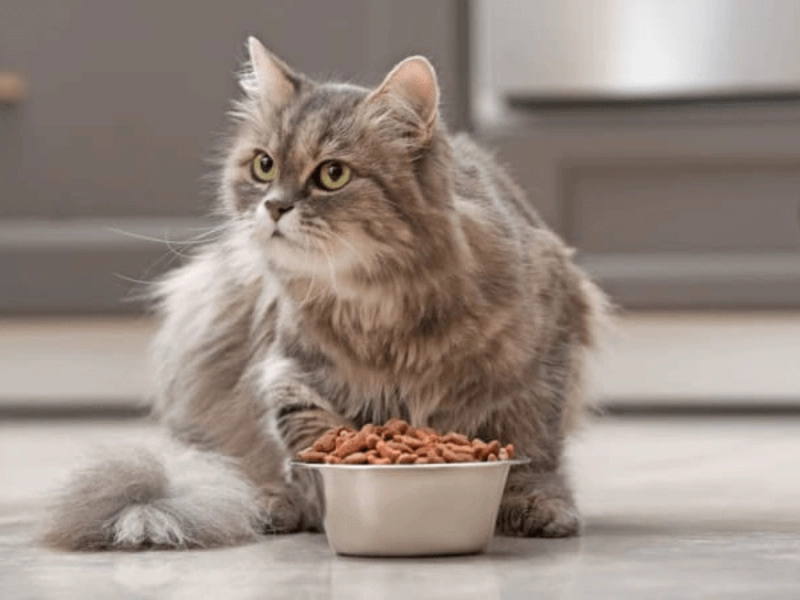6. Your Cat’s Appetite Has Decreased

When it comes to feline health and well-being, a drop in appetite raises major concerns. Unlike humans, who might deliberately choose to fast or diet for various reasons, cats depend on a steady, regular diet to stay healthy. A significant decline in a cat’s appetite or a complete refusal to eat clearly signals that something is wrong and requires prompt attention. This shift in eating behavior could indicate a wide range of underlying issues, from minor temporary discomfort to more serious medical conditions.
A cat could lose its appetite for a variety of reasons. Illness or physical pain is one of the most common causes. Dental issues, gastrointestinal disorders, kidney disease, liver disease, or even cancer can all affect a cat’s desire to eat. Pain from any source—whether due to internal problems, arthritis, or injury—can also lead to reduced appetite. Loss of appetite is often a key symptom of infections, both bacterial and viral. Additionally, certain medications may have side effects that diminish a cat’s interest in food.
Stress and anxiety are two other major factors that can lead to a decreased appetite in cats. Changes in the home environment—such as moving to a new house, adding a new pet or family member, or altering the daily routine—can make cats feel uneasy and less interested in food. Some cats are particularly sensitive to changes in their diet or feeding schedule, which could result in a temporary loss of appetite. Environmental stressors like loud noises, unfamiliar visitors, or conflicts with other pets in the household can also affect a cat’s willingness to eat.
Age-related changes can also contribute to a decline in appetite. Cats entering their senior years may naturally lose some of their sense of taste and smell, making food less appealing. Older cats are also more likely to have health issues, such as kidney disease or dental problems, that can interfere with their eating habits. Cognitive impairments in senior cats can lead to confusion about meal times or difficulty locating their food bowls, similar to dementia in humans.
If your cat’s appetite decreases, it’s important to closely monitor any other accompanying symptoms or behavioral changes. Is their water intake higher or lower? Have their litter box habits changed? Do they seem lethargic or less interested in their usual activities? These observations can provide valuable clues about the underlying cause of the appetite change and help guide your veterinarian’s diagnosis.
Given the potential seriousness of a reduced appetite, particularly if it lasts more than a day or two, it’s crucial to seek veterinary care promptly. A thorough physical examination can help identify any obvious health issues, and additional diagnostic tests such as blood work, urinalysis, or imaging studies can provide a comprehensive picture of your cat’s health status. Early intervention is essential, especially in overweight cats, as prolonged periods without adequate nutrition can lead to serious complications like hepatic lipidosis (fatty liver disease).
In the meantime, there are steps you can take to encourage your cat to eat. Offering palatable, aromatic foods can stimulate their appetite. You might try different textures or flavors of cat food, or even offer small amounts of plain, unseasoned cooked chicken or fish. Ensure that food and water bowls are clean and easily accessible, and consider feeding in a quiet, stress-free environment. However, avoid giving your cat human foods that could be harmful or attempting to force-feed them.
For cats with stress-related appetite loss, creating a calm and consistent environment is crucial. Maintain regular feeding times and routines as much as possible. Provide quiet, safe spaces where your cat can eat without feeling anxious or threatened. In some cases, appetite stimulants prescribed by your veterinarian may be necessary to encourage eating while addressing the underlying cause of the appetite loss.
Remember, a reduced appetite in a cat is not something to ignore. Often, it’s one of the first signs of an issue with your cat’s health or well-being. Paying close attention to this change in behavior and seeking prompt veterinary care can help diagnose and treat serious health problems early on, ensuring the best possible outcome for your cat’s overall health and quality of life.

